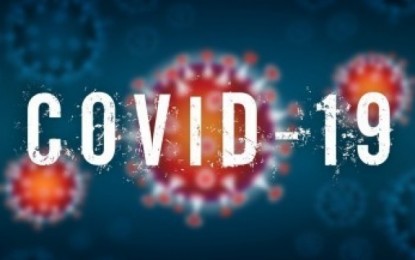
MANILA – It is still premature to say that there is an emerging local variant of the SARS-CoV-2 in the Philippines, the Philippine Genome Center (PGC) said Friday following the detection of two "mutations of potential clinical significance" in Central Visayas.
"Whether this is an emerging Philippine variant or not, that remains to be seen and probably we will know that in the next few weeks," PGC Executive Director Dr. Cynthia Saloma said in a virtual briefing.
Saloma noted that an emerging variant is "always a possibility" in different countries, as she emphasized the importance of increased genomic surveillance.
The Philippines continues to improve its sequencing and is expected to process more samples coming from Cebu and nearby provinces and regions, she added.
The Department of Health in Region 7 earlier said the new mutations, coded as E484K and N501Y, could be the reasons for the continued spike of coronavirus disease 2019 (Covid-19) cases in Cebu.
DOH chief epidemiologist Alethea de Guzman, however, noted that they cannot conclude yet whether these mutations are attributable to the surge.
"Even if we are not yet able to make that conclusion or to answer that question, what's important is that there are already measures being initiated by the DOH and by our local government unit," she said.
Saloma said the Philippines' enhanced biosurveillance efforts have been in place for quite some time now following an advisory from the World Health Organization (WHO) after the detection of the more transmissible South African and the B.1.1.7. or UK (United Kingdom) variants of SARS-CoV-2.
"Tayo naman po dito sa ating bansa sama-sama po tayong gumawa nito kahit mahal at challenging ginagawa po natin iyan (We, in the country, are working together to enhance this even though it's expensive and challenging)," she said.
Saloma, meanwhile, reported that all the patients found to have the two concerned mutations have recovered from the disease.
"All the cases in Central Visayas with the two mutations of concern exhibited only mild symptoms and have been cleared from their quarantine," she said. The mutations were detected in 31 of 50 samples earlier submitted by Region 7.
Explaining mutations
Dr. Edsel Salvana of the DOH-Technical Advisory Group (TAG) said mutation happens when an "error" occurs during the duplication of the viral RNA.
"These mutations, in isolation, we don't know what they mean pero alam natin 'pag in combination lalo na 'yong sa UK variant, nagkakaroon ng problema (but we know that in combination most especially with what happened in the UK variant, that's where the problem comes in)," he said,
"So whether itong nakikita natin ngayon is maybe a new variant or not a new variant kailangan pa pong pag-aralan (So whether this is a new variant or not, we still need to study it further)," he added.
DOH-TAG member and Philippine Society of Microbiology President Dr. Marissa Alejandria said SARS-CoV-2 already had almost "4,000 mutations" but most are "silent".
Like other countries, she said the Philippines is currently monitoring for mutations in the virus' spike protein.
"Kung minor lang naman 'yong spelling error, wala siyang epekto pero kung doon sa spike protein, since iyon nga ang nagfa-facilitate ng entry, iyon ang binabantayan natin na mutation, iyon din kasi ang tina-target ng ating mga bakuna, diagnostic test, at treatments (If the error is minor then it has no significant effect. But we're monitoring if the change occurred on the spike protein, since that's the one that facilitates the entry of the virus, that's also the target of our vaccines, diagnostic test, and treatments)," she said.
Alejandria, meanwhile, noted that the mode of transmission is still the same -- through droplets, so the same public health measures such as the wearing of masks must be observed to lessen any risk of infection.
Alejandria said mutation is part of a virus' evolution for them to survive and "the more cases we have then the more opportunities they have to mutate". (PNA)
